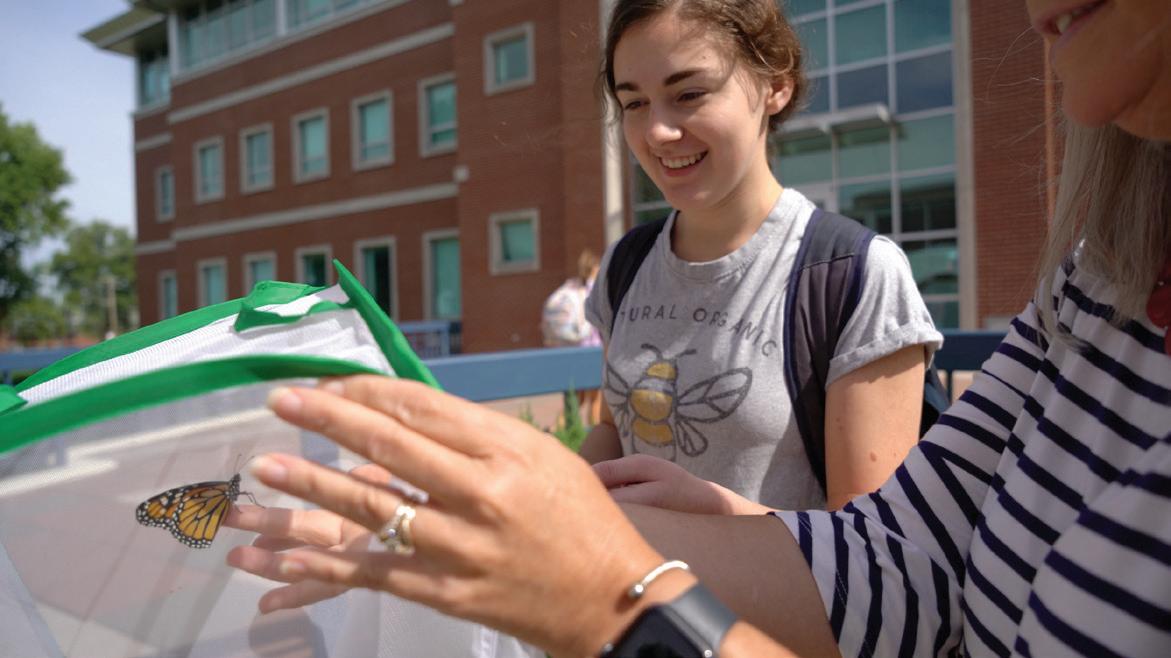
3 minute read
Education is an investment.
“It’s not that you’re isolating yourself from the world, but you’re saying, ‘I’m going to spend this time intentionally growing and strengthening myself.’” When students do leave the bubble, Dearden said, they’ll have the strength, stamina, and skills to succeed, but also to advance the kingdom of God.
Built for change
Advertisement
A major challenge for Christian universities is helping students prepare to live as believers in a world where their beliefs are increasingly less embraced. The most recent numbers from Pew Research show 29% of Americans say their religion is atheist, agnostic, or “nothing in particular,” up from 16% who said the same in 2007. Pew reports 63% of U.S. adults identify as Christian, down from 78% in 2007.
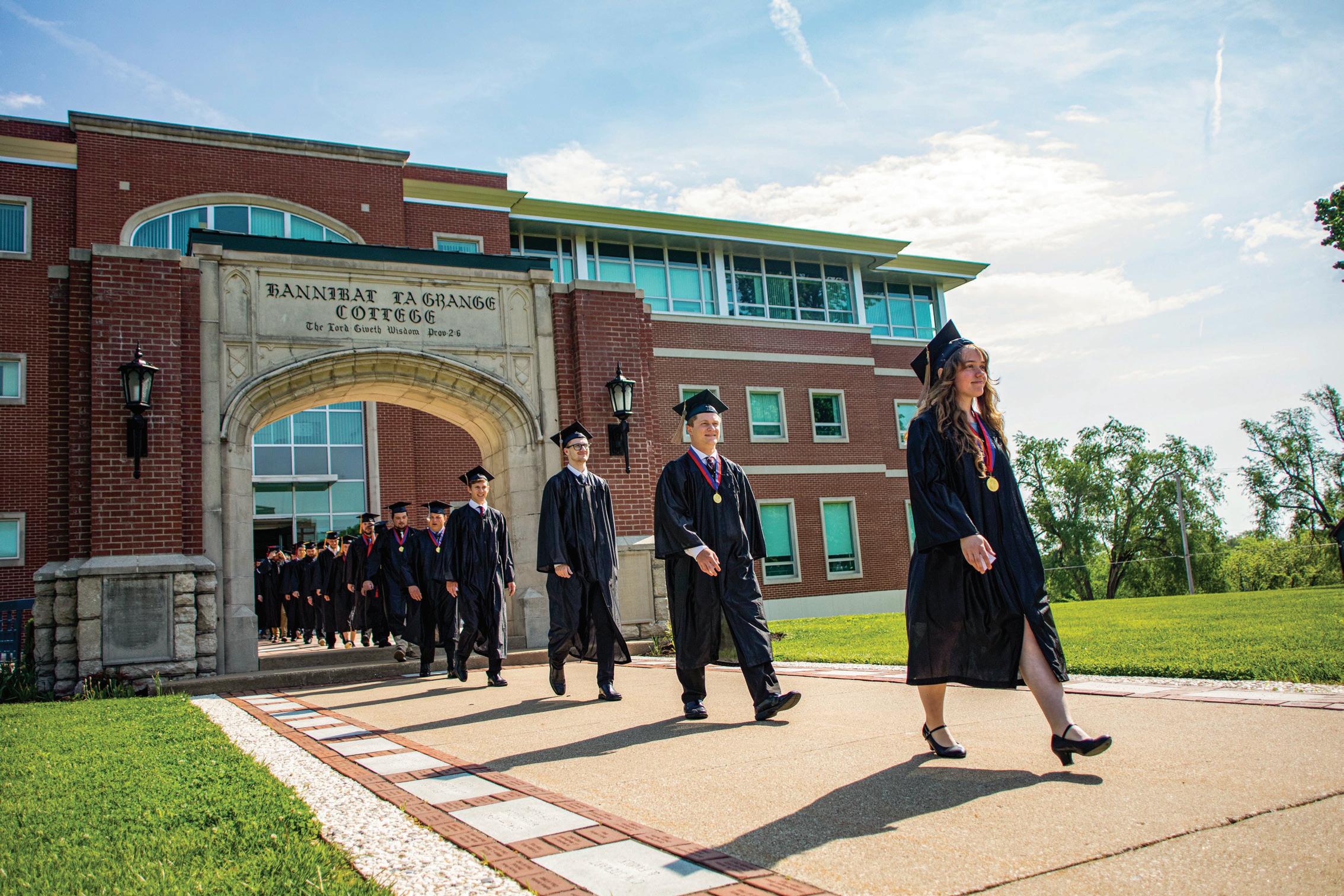
In the quickly shifting culture, Hannibal-LaGrange University (HLGU) in Hannibal, Mo., is equipping faculty and staff through a partnership with the Colson Center for Christian Worldview. In 2021, HLGU announced the first four fellows in its Colson Fellows Program, noting the program “equips Christians with a robust Christian worldview so they can thoughtfully engage with post-Christian culture, inspire reflection in others, and work effectively toward re-shaping the world in the light of God’s kingdom.”
“As higher education increasingly becomes the domain of the liberal secularist and our society progressively rejects notions of biblical morality, we need unapologetically Christian universities,” said HLGU President Robert Matz. “Graduates from Hannibal-LaGrange University are uniquely equipped to face the challenges of a society that is at best apathetic and at times hostile to the Christian faith.”
An important part of learning to live as a

Christian in a post-Christian world is understanding varied perspectives. At Greenville University, freshmen take a class on “Christian Thought and Life” where they visit different places of worship and learn tenets of different faiths. Keagan Bouman, a senior planning to attend divinity school after graduation, said her classes have helped her learn to have empathy for others without judgment.
“We can’t share our faith without learning first about theirs and how they perceive the world.”
As a high schooler, Anna Grace Galkin wrestled with questions about her own faith, like how the Bible or Christianity could claim to be the only truth. She spent a lot of time reading the book of Romans with her dad, a church planter in Salt Lake City. When she got to Cedarville, Galkin said, her participation in the university’s honors program gave her an opportunity to compare the truth of the Bible to other systems of belief. It allowed her to see the Bible can stand up to questions as big as hers.
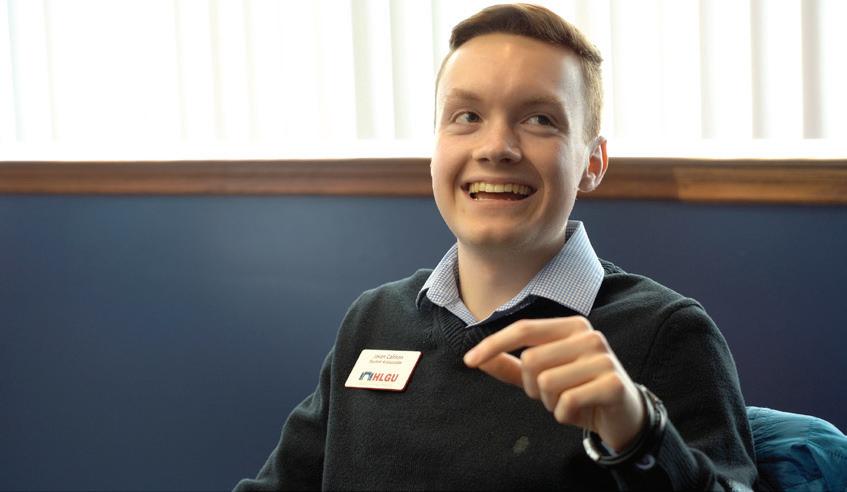
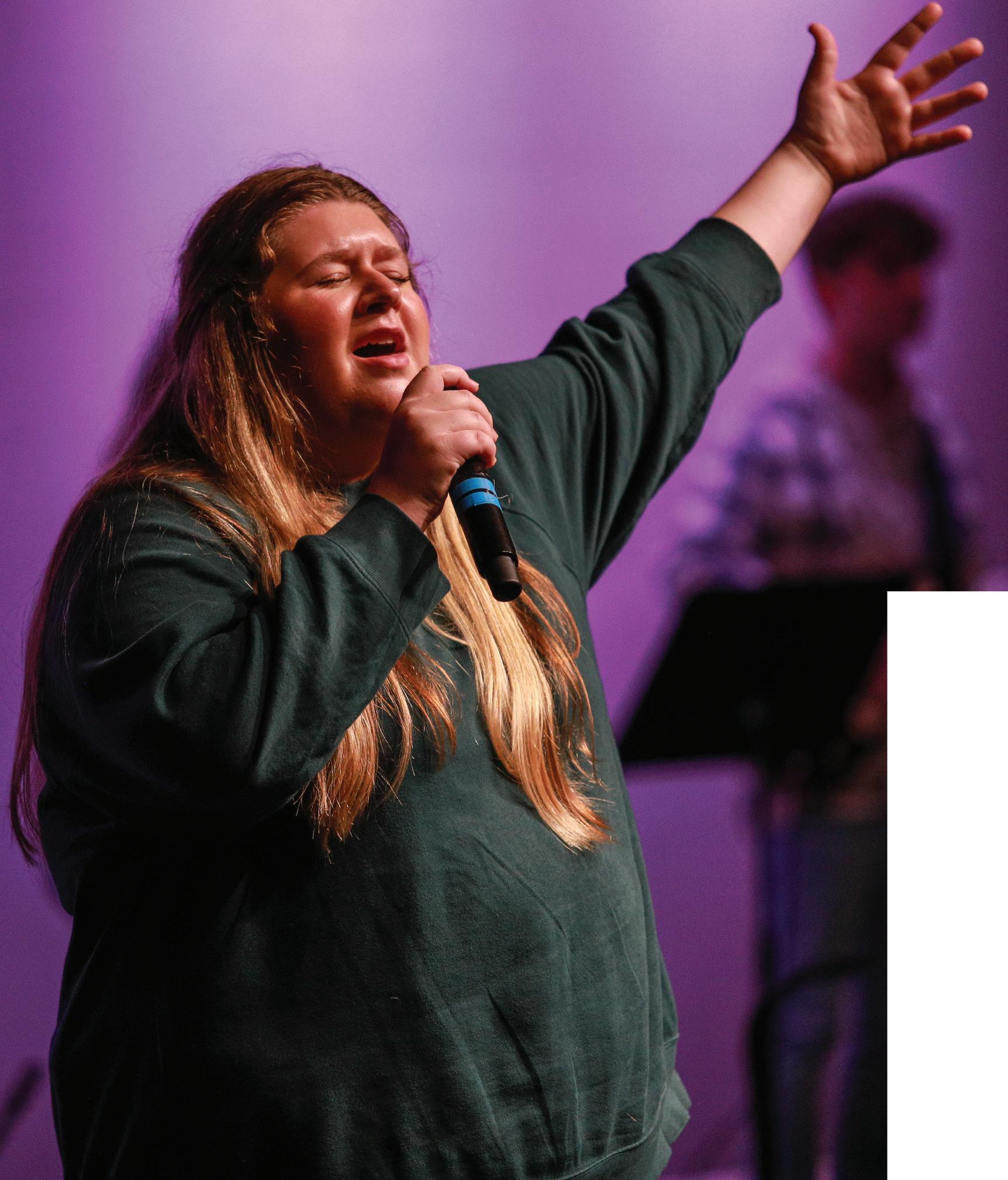

Galkin is a writer and an English major currently considering graduate programs. She will also graduate with a 15-hour Bible minor, a requirement for all Cedarville students.
“Even embedded in my degree, my professors have structured it in a way where I’m continually trying to understand other people’s perspectives—from Plato to the present,” she said. “I’m going to use that no matter what I end up doing in the future. No matter what, I want to be able to engage with my neighbors, or my coworkers, or my clients, or my audience.” www.hlg.edu
Adventure awaits Universities with intentional discipleship at their core have their gaze fixed firmly on the local church, and their students’ places in it.
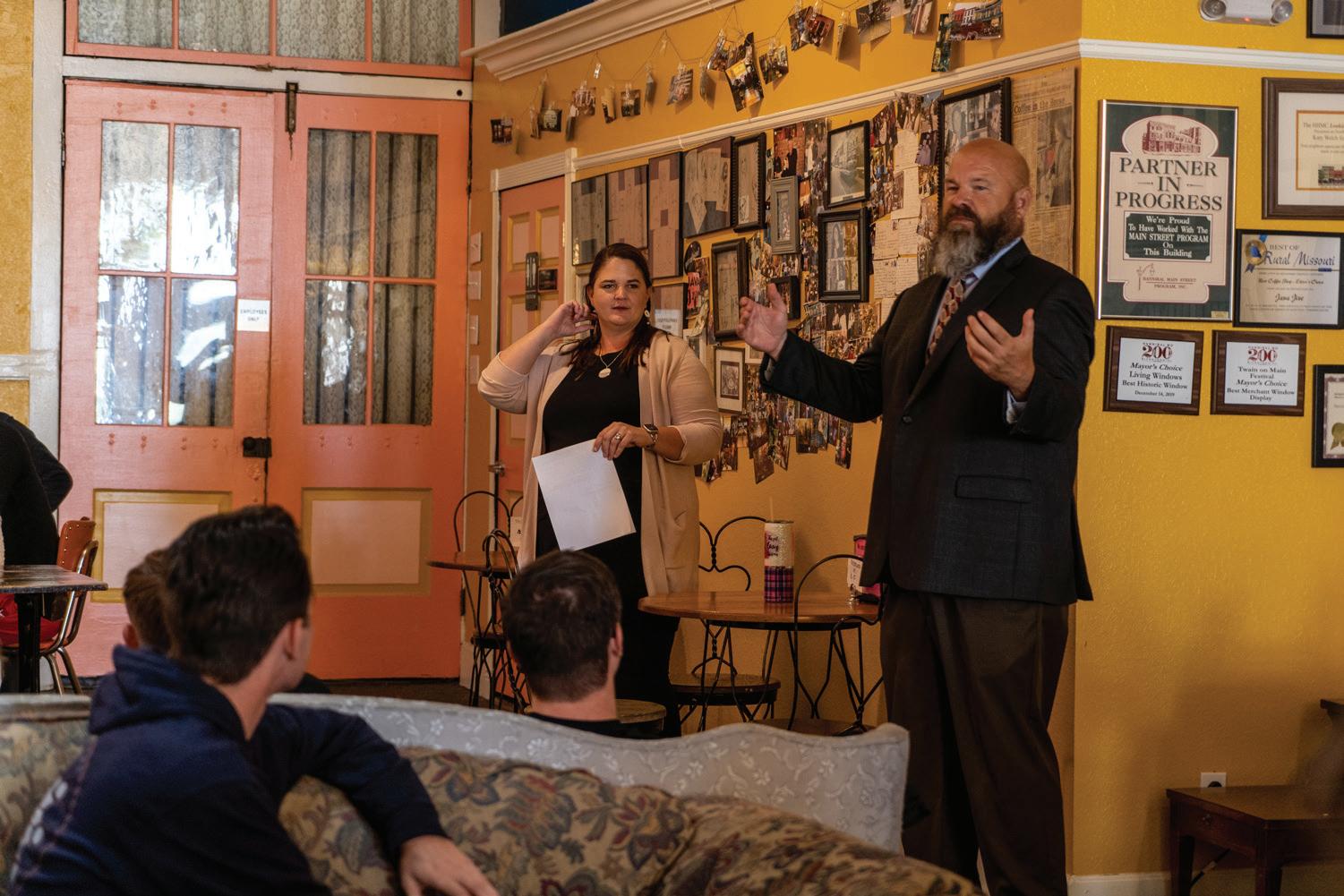


“We challenge students in their time here to not only get involved in campus ministries but also to root their lives in a local church,” said President Matz at HLGU. “We as a university partner with local churches in service to our community and encourage students to join local churches and be active servants.”
All students who are ministry majors do a fulltime, nine-week internship at a local church the summer before their senior year, Wayman said of his school. “Everything we do is in connection to the church. We’re not training our students to be pastors in a vacuum. We’re trying to pay attention to what churches they are hoping to lead and serve, and how can we train them for that very thing.”
Leah Brown is a college senior with a call to vocational ministry. She senses God leading her to serve people who don’t feel welcomed by the church, helping them see they are worthy of Christ’s love, and fearfully and wonderfully made, she said. “You don’t have to clean yourself up before you come to Jesus. He loves you as you are, and has more for you.”
Before college, Brown said, like most people graduating from high school, she thought she knew everything. “Being here has really opened my eyes to just how deep-rooted brokenness is, and how trauma and the evil of the world can really lock onto somebody.” Her college experience has produced a clear sense of calling to address cycles of sin and brokenness that result from deeper trauma and hurt.
“The church is the end game of the Christian university,” Wayman said. “Hopefully we’re living our faith in a way that is compelling for our students. Hopefully, they’ll find a Christian community is the most exciting community on offer—and see the adventure of following Jesus.”










